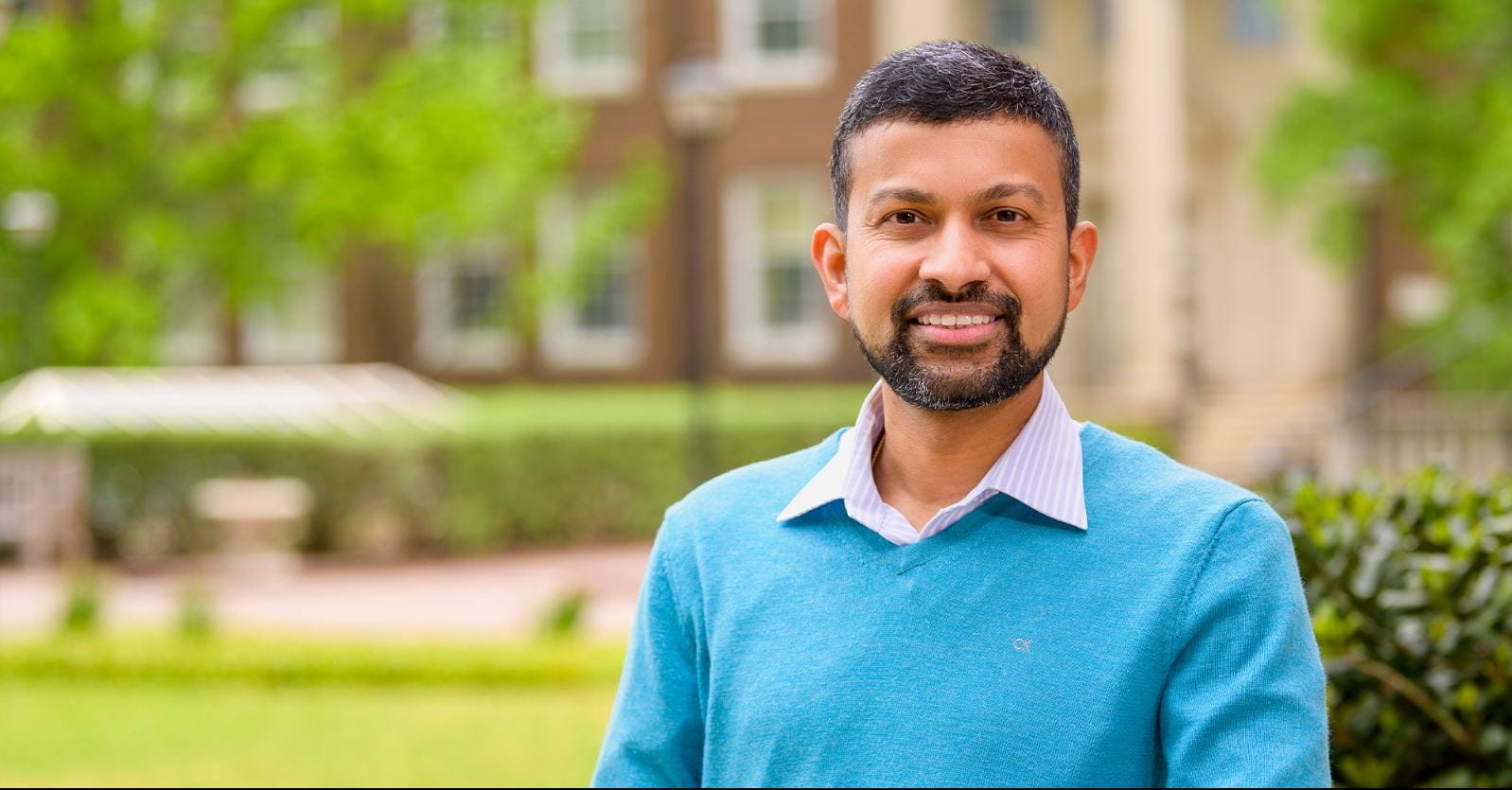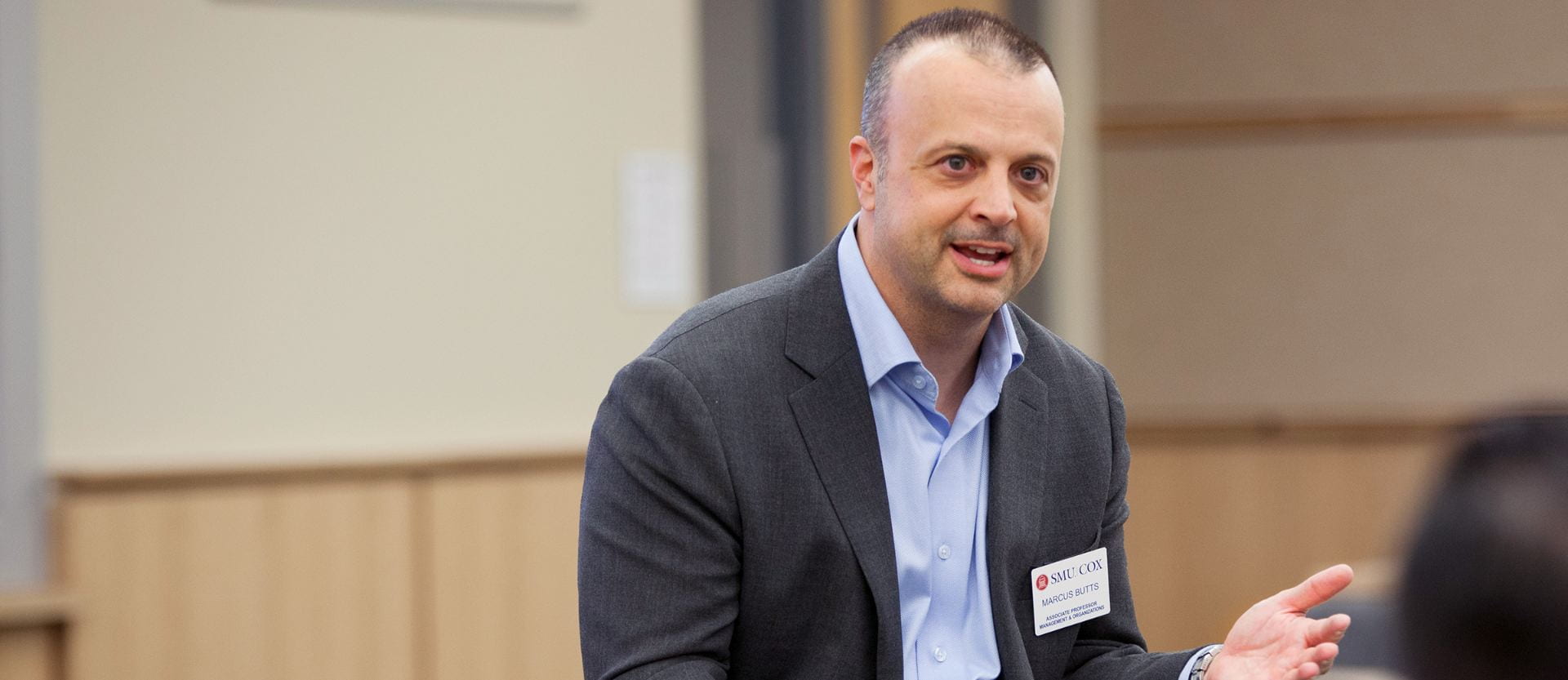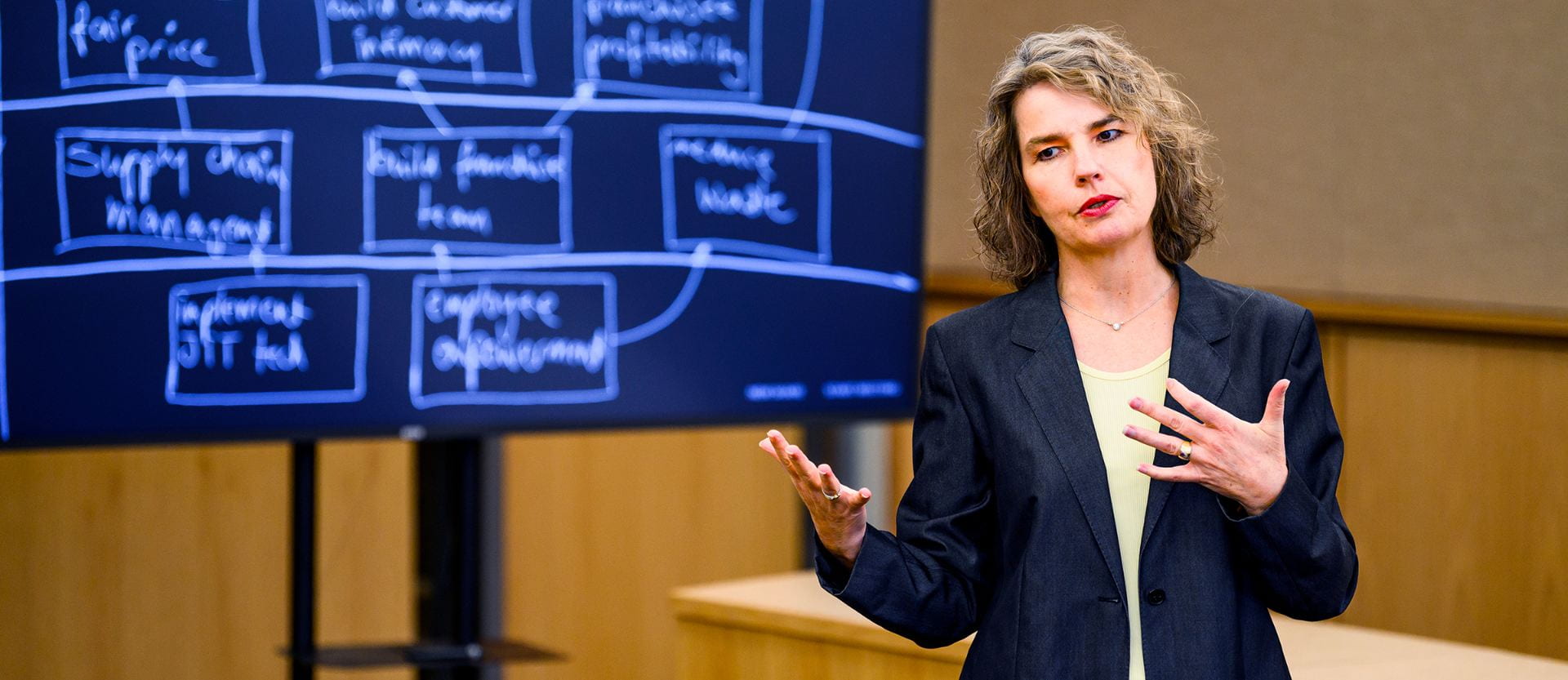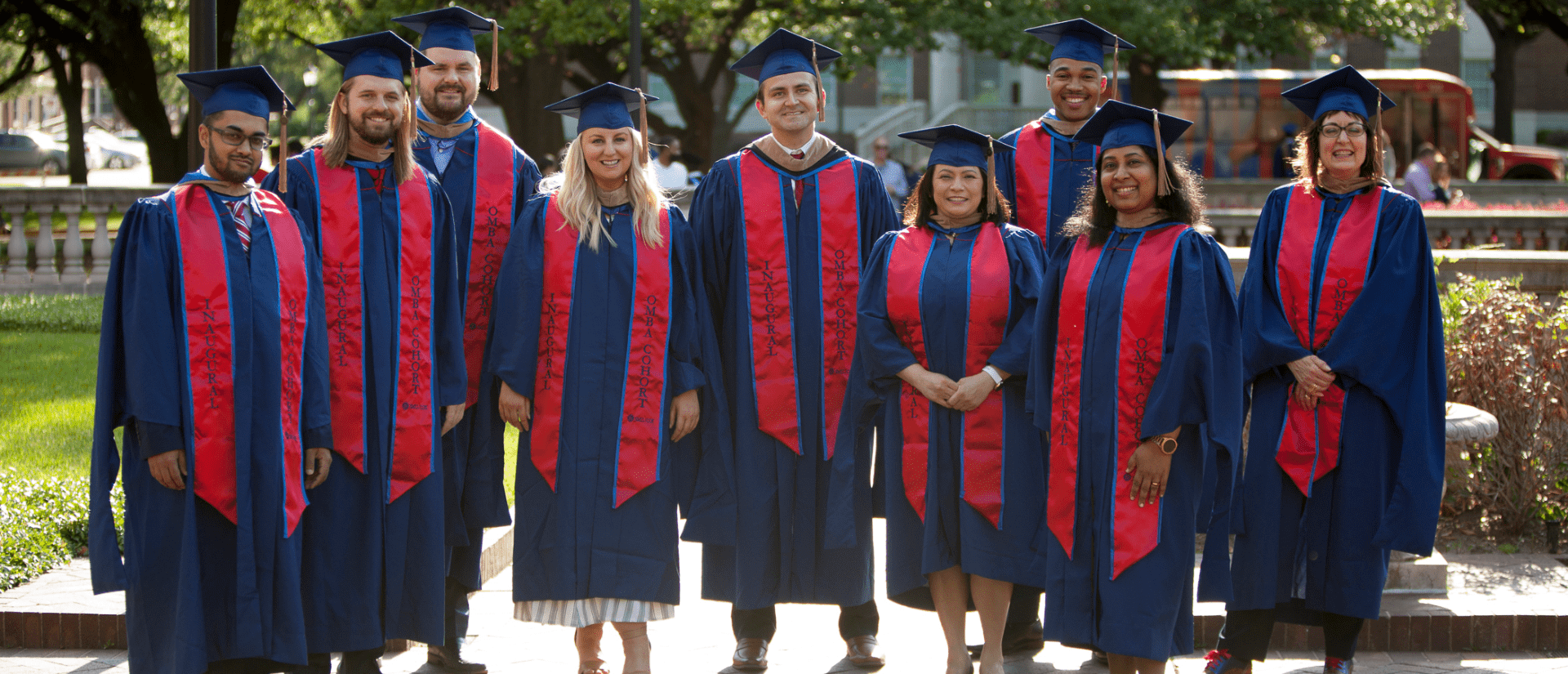Kumar Venkataraman is in high demand. The SMU Cox finance professor serves as a valuable resource for industry experts — and his students.
“He is leaned on all the time by professionals, other academics and governments who seek out his expertise,” says James Linck, the finance department chair and the distinguished chair in finance at SMU Cox School of Business. “His research and expertise in the area are second to almost no one. He’s fabulous in the classroom, capitalizing on his expertise.”
Formerly chairman of the Cox School’s finance department, Venkataraman is the Maguire Chair in Energy Management and the academic director at the Maguire Energy Institute & Kyle Miller Energy Program. He was appointed in 2017 as an inaugural member of the Fixed Income Market Structure Advisory Committee (FIMSAC), for which he studies and advises the U.S. Securities and Exchange Commission (SEC) on the design of U.S. fixed-income markets.
As one of 23 industry experts analyzing and driving change in this field, Venkataraman is uniquely positioned through his role on FIMSAC to bring not just real-world but real-time knowledge and experience to students.
Preparing for Periods of Economic Change
When the COVID-19 pandemic hit, the world was unprepared. But some industry experts had already been analyzing the potential fallout of such an uncertain environment. In 2019, FIMSAC’s ETFs and Bond Funds subcommittee — one of three on which Venkataraman serves — published a white paper about the liquidity and resiliency of the bond markets during periods of great volatility and stress in the market. Venkataraman says the report highlighted several types of challenging scenarios that market participants needed to anticipate and prepare to address.
“What was lacking when we published the report was suitable data in stress environments, as financial markets had been relatively quiet over the past decade,” he says. “Subsequently, when COVID happened, many scenarios described in our report about how bond markets might behave — those patterns were observed during the pandemic months.”
When COVID-19 hit the United States, FIMSAC adjusted its course. “When we saw the uncertainty related to the pandemic, the focus of the committee shifted quickly, from identifying weaknesses in bond market structure to specifically examining the sources of bond market fragility that were observed during COVID-19 in the various segments of the market,” Venkataraman says.
Venkataraman and his colleagues on FIMSAC have also focused on examining the effects of COVID-19 on trading in the corporate and municipal bond markets and the ability of bond issuers to access financial markets.
“It is useful to have an opinion on how markets might behave during episodic periods of stress,” Venkataraman says. “And when a stress incident actually occurs, you can collect data and survey participants to learn how things played out, identify the important drivers of fragility in financial markets and propose improvements to address the weaknesses in the system. That is exactly what FIMSAC has attempted to do.”
In March, Venkataraman became an academic affiliate with the Analysis Group, one of the world’s largest international economics consulting firms. Affiliated experts have a broad base of knowledge and extensive experience in their fields, including finance. Their subject knowledge is sometimes called upon for the firm’s work in litigation, strategy or research, and as testifying expert witnesses. Venkataraman has participated in numerous regulatory and industry panels on the emerging issues and the effects of COVID-19 on liquidity and capital-raising activity. As an academic expert on the topic, his views based on large-sample scientific evidence published in peer-reviewed journals provide a unique perspective to industry participants. Being at the forefront of these data-driven conversations during the pandemic has given Venkataraman a unique platform to educate and advise future leaders — his students — who will need to learn how to anticipate and respond to uncertainty and changes in the market environment.
Bringing Committee Work to Cox
Venkataraman’s work on FIMSAC has inspired various research projects at the Cox School, including a study of block trading in the corporate bond market in collaboration with SMU Cox Associate Professor of Finance Stacey Jacobsen.
Trades in the corporate bond market are reported almost immediately. A few of the larger participants on the Corporate Bond Transparency subcommittee floated a proposal to slow the reporting of block transactions. Venkataraman, who had published research with SMU Cox Professor of Finance Bill Maxwell demonstrating that an almost-immediate reporting process benefits market participants (especially less-sophisticated investors), vocally opposed the proposal during the committee deliberations.
“This was a very contentious issue,” Venkataraman says. “In fact, one objective of the new project that Professor Jacobsen and I are working on is to carefully consider the viewpoint that I had presented in the committee, but also the perspectives of other committee members — and to actually take it to data and test whether there is stronger evidence for one viewpoint versus the other.”
Venkataraman is also researching reporting regimes in municipal bond markets with Chotibhak (Pab) Jotikasthira and Jinming Xue, associate and assistant professors in the Cox finance department, respectively. While working on FIMSAC, Venkataraman learned that, unlike corporate bond issuers, municipal bond issuers are not required by regulation to provide timely disclosures of financial performance. In their study, the three professors ask whether, and to what extent, financial markets penalize municipal bond issuers who elect to provide less timely disclosures to investors.
“Due to my participation in FIMSAC, I have learned about the different approaches to building institutional portfolios and the emerging challenges faced by institutions, particularly when they relate to managing risks such as liquidity that are difficult to hedge.”
– Kumar Venkataraman
Shaping the Future of Finance
Through his work and thought leadership, Venkataraman is able to shine a global spotlight on SMU Cox while bringing industry-leading expertise into the classroom.
But Venkataraman’s FIMSAC appointment has not just brought visibility to the Cox School. It’s also brought industry experts into contact with Cox students, the next generation of business leaders and investment professionals.
Venkataraman teaches investment courses to MBA and Master of Science in Finance students that cover the theoretical framework for constructing investment portfolios. He says his work on FIMSAC has broadened his understanding of the market and of the practices and challenges of building institutional portfolios — knowledge he shares in the classroom. He has even designed Cox classes to emphasize the institutional facets of financial markets.
“Due to my participation in FIMSAC, I have learned about the different approaches to building institutional portfolios and the emerging challenges faced by institutions, particularly when they relate to managing risks such as liquidity that are difficult to hedge,” he says. “I have brought these ideas and conversations into my classroom instruction.”
Venkataraman has also collaborated closely with investors from across the industry while working on FIMSAC. He uses these connections for the benefit of his students, inviting industry leaders to serve as guest speakers on various topics in his classes.
“These speakers are managing billions of dollars as asset managers, implementing the conceptual framework that forms the backbone of an investments course that I teach,” Venkataraman says. “It is important for students to see that it is okay to build portfolios using different methods, guided by the investment philosophy. Having students understand not just the concepts that underlie how portfolios can be built but to hear from industry leaders who are managing these large portfolios is something that the students enjoy very much.” It’s one more way Venkataraman helps impart knowledge to aspiring investment professionals and tomorrow’s leaders of business.












